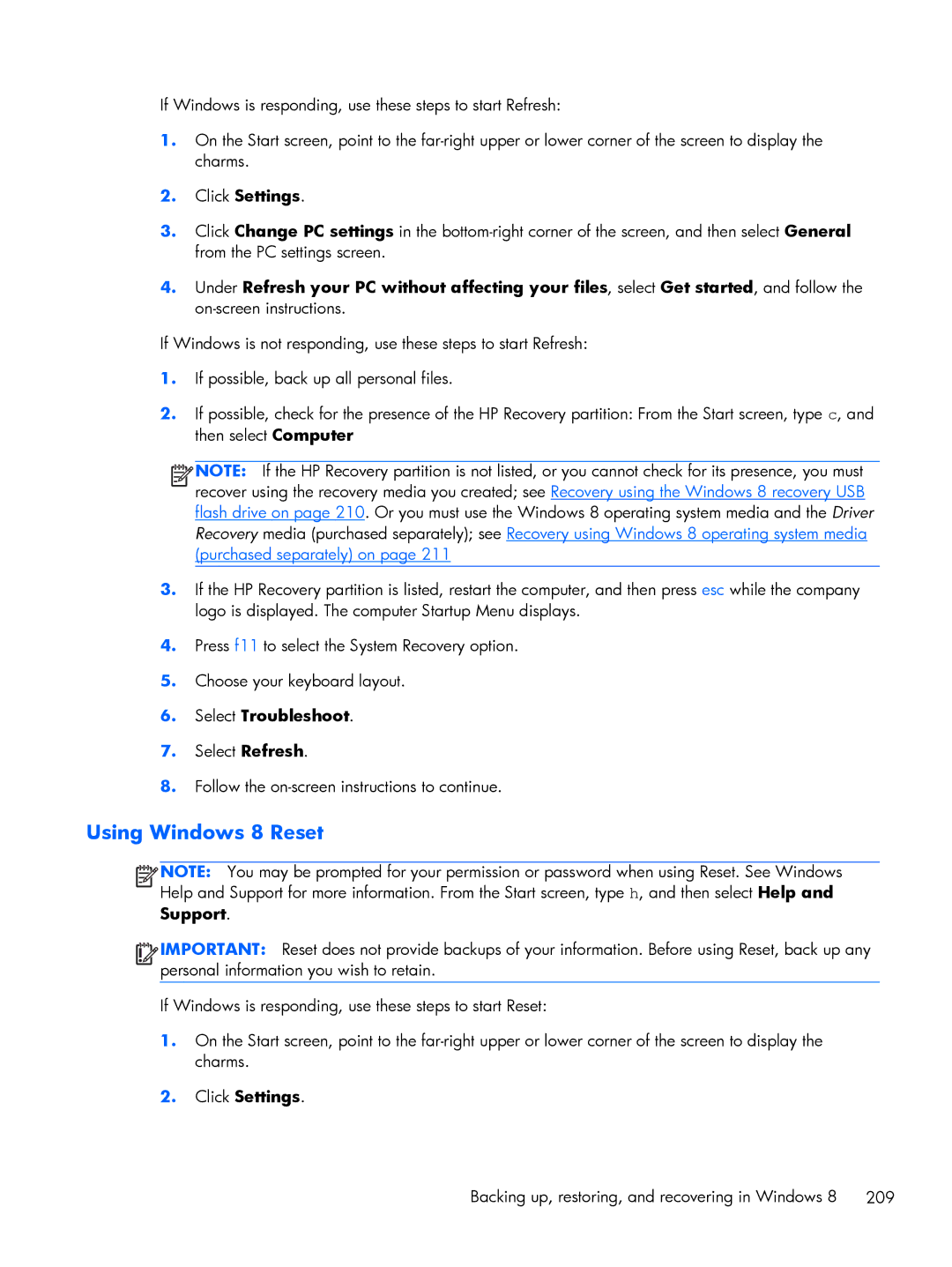
If Windows is responding, use these steps to start Refresh:
1.On the Start screen, point to the
2.Click Settings.
3.Click Change PC settings in the
4.Under Refresh your PC without affecting your files, select Get started, and follow the
If Windows is not responding, use these steps to start Refresh:
1.If possible, back up all personal files.
2.If possible, check for the presence of the HP Recovery partition: From the Start screen, type c, and then select Computer
![]()
![]()
![]()
![]() NOTE: If the HP Recovery partition is not listed, or you cannot check for its presence, you must recover using the recovery media you created; see Recovery using the Windows 8 recovery USB flash drive on page 210. Or you must use the Windows 8 operating system media and the Driver Recovery media (purchased separately); see Recovery using Windows 8 operating system media (purchased separately) on page 211
NOTE: If the HP Recovery partition is not listed, or you cannot check for its presence, you must recover using the recovery media you created; see Recovery using the Windows 8 recovery USB flash drive on page 210. Or you must use the Windows 8 operating system media and the Driver Recovery media (purchased separately); see Recovery using Windows 8 operating system media (purchased separately) on page 211
3.If the HP Recovery partition is listed, restart the computer, and then press esc while the company logo is displayed. The computer Startup Menu displays.
4.Press f11 to select the System Recovery option.
5.Choose your keyboard layout.
6.Select Troubleshoot.
7.Select Refresh.
8.Follow the
Using Windows 8 Reset
![]()
![]()
![]()
![]() NOTE: You may be prompted for your permission or password when using Reset. See Windows Help and Support for more information. From the Start screen, type h, and then select Help and
NOTE: You may be prompted for your permission or password when using Reset. See Windows Help and Support for more information. From the Start screen, type h, and then select Help and
Support.
![]()
![]()
![]()
![]() IMPORTANT: Reset does not provide backups of your information. Before using Reset, back up any personal information you wish to retain.
IMPORTANT: Reset does not provide backups of your information. Before using Reset, back up any personal information you wish to retain.
If Windows is responding, use these steps to start Reset:
1.On the Start screen, point to the
2.Click Settings.
Backing up, restoring, and recovering in Windows 8 209
